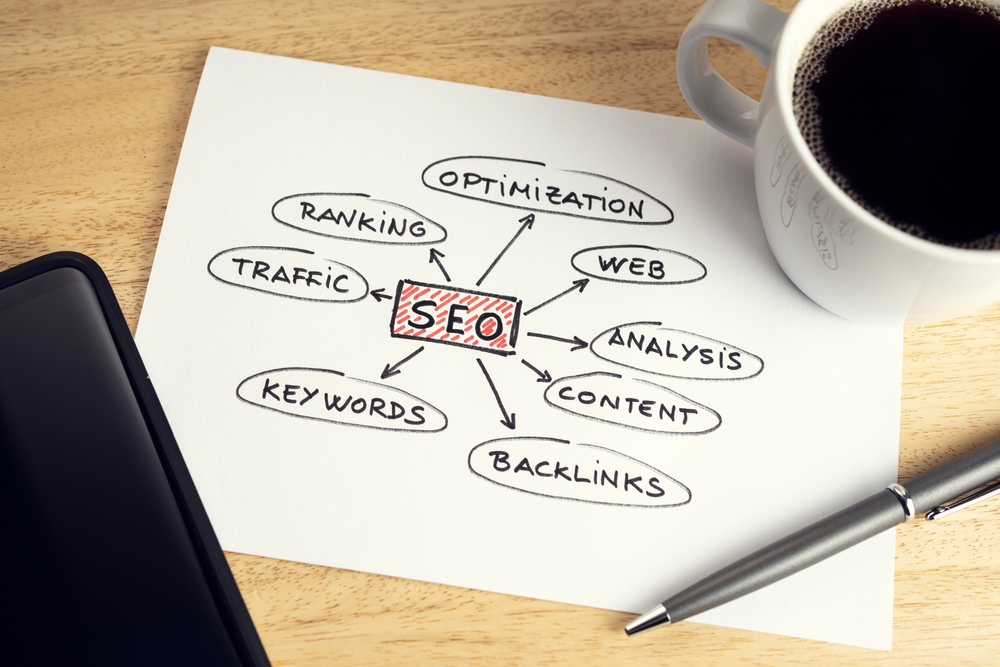
In the ever-evolving world of digital marketing, mastering search engine optimization (SEO) and link building is crucial for businesses to stay ahead of the competition and drive more organic traffic to their websites. SEO and link building go hand in hand, as they are key components in improving a website's visibility on search engine result pages (SERPs). In this article, we will explore insider tips and proven tricks to help you master SEO (or SEM) and link building, and ultimately boost your online presence.
Understanding SEO/SEM
SEO is the practice of optimizing a website to rank higher in search engine results, such as Google, Bing, or Yahoo. While search engines have complex algorithms that determine rankings, there are certain strategies that can significantly improve a website's SEM/SEO .
1. Keyword Research: Keyword research is the foundation of any successful SEO (search engine optimization) campaign. Start by identifying relevant keywords and phrases that are frequently searched by your target audience. Tools like Google Keyword Planner and SEMrush can help you find high-volume, low-competition keywords to target.
2. On-Page Optimization: On-page optimization involves optimizing various elements within a webpage to make it more search engine friendly. This includes optimizing page titles, meta descriptions, URLs, headers, image alt tags, and keyword density. Remember, though, that keyword stuffing is a thing of the past; focus on creating high-quality, valuable content.
3. High-Quality Content: Speaking of content, creating high-quality and relevant content is paramount. Engage your audience with informative articles, blog posts, videos, infographics, and more. Google values websites that provide relevant and valuable content to users, so be sure to produce content that aligns with your audience's needs and interests.
Link Building for SEO Success
Link building is the process of acquiring backlinks from other websites, ultimately boosting your website's credibility and authority in the eyes of search engines. When done correctly, link building can significantly improve your website's organic ranking and visibility.
1. Create Shareable Content: The key to successful link building is creating content that others want to share and link to. Focus on producing high-quality, unique, and shareable content that provides value to your target audience. Infographics, guest blog posts, research articles, and industry guides are all great examples of shareable content.
2. Outreach and Guest Blogging: Reach out to influencers or websites within your industry and offer to write a guest blog post. Not only will this help you build relationships with industry leaders, but it also allows you to gain backlinks to your website. When guest blogging, ensure that the content is relevant, well-written, and provides value to the target website's audience.
3. Social Media and Online Communities: Actively participating in social media platforms and online communities can help you build relationships with others in your industry. By consistently sharing valuable content and engaging with your audience, you increase the likelihood of others linking back to your website. Additionally, sharing your content on social media platforms can drive more traffic to your website, further improving your SEO efforts.
Frequently Asked Questions
1. How long does it take to see results from SEO efforts?
SEO is a long-term strategy, and it may take several months to see noticeable results. However, by consistently implementing best SEO practices and monitoring your website's performance, you can expect to see improvements over time.
2. Are backlinks still important for SEO?
Yes, backlinks remain an essential factor in SEO. Search engines consider backlinks as a vote of confidence for your website's credibility and authority. However, it's crucial to focus on acquiring high-quality backlinks from reputable websites rather than quantity.
3. Are there any SEO strategies to avoid?
Yes, there are certain SEO strategies that can do more harm than good. Avoid keyword stuffing, buying backlinks from low-quality websites, duplicating content, and using black-hat SEO techniques. These tactics can result in penalties from search engines and tarnish your website's reputation.
4. How often should I update my website's content?
Regularly updating your website's content is beneficial for both users and search engines. Aim to add fresh content at least once a month, whether through blog posts, product updates, or industry news. Additionally, regularly reviewing and optimizing existing content can also boost your SEO efforts.
5. Is local SEO important for all businesses?
Local SEO is especially crucial for businesses with physical locations or those targeting a specific geographical area. Optimizing your website for local search includes creating Google My Business listings, consistent NAP (name, address, phone number) citations, and local keyword targeting. This helps your website appear in local search results when users search for relevant products or services in your area.
Conclusion
Mastering SEO and link building is a continuous process that requires staying updated with industry best practices and trends. By implementing the insider tips and proven tricks outlined in this article, you can improve your website's SEO efforts and drive more organic traffic to your online presence. Remember to focus on creating valuable content, acquiring high-quality backlinks, and continuously optimizing your website to stay on top of the SEO game.
Other useful resources
- https://www.seoguru24.com/listing-category/seo-services/
- https://en.wikipedia.org/wiki/Search_engine_marketing